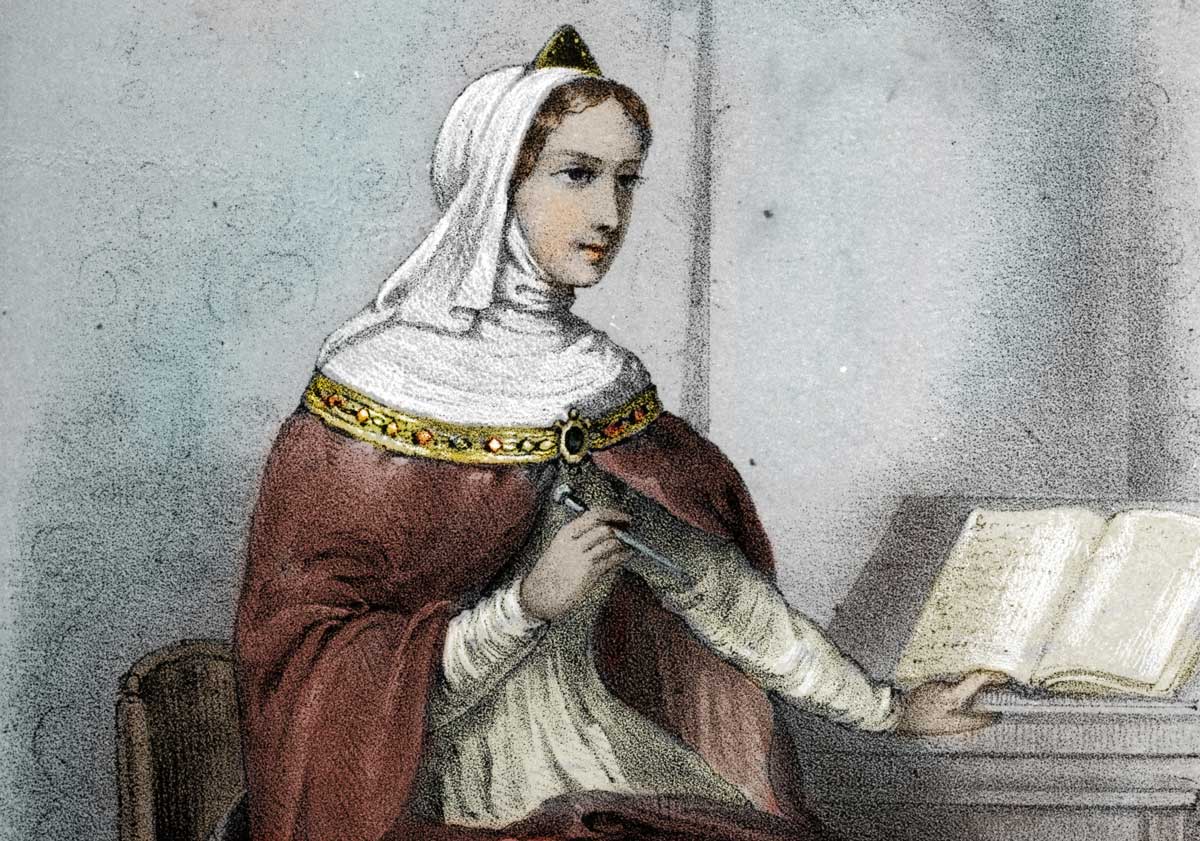
Anna Comnena, a remarkable figure in Byzantine history, continues to captivate our curiosity with her life and accomplishments. Born in 1083, Anna was the daughter of Emperor Alexis I Comnenus, and she would later earn the title of Byzantine historian, scholar, and princess. Despite living in a male-dominated society, Anna defied societal norms and emerged as a trailblazer in her own right. Her contributions to literature, politics, and intellectual pursuits were undeniably groundbreaking for her time.
In this article, we will delve into 15 astonishing facts about Anna Comnena, shedding light on her remarkable life and legacy. From her awe-inspiring intellect and thirst for knowledge to her influential works and controversial rivalry with her brother, we will explore the captivating story of this extraordinary woman who left an indelible mark on history.
Key Takeaways:
- Anna Comnena, a Byzantine princess, defied gender norms by pursuing education in medicine, astronomy, and literature, leaving a lasting impact on history despite being overlooked for the throne.
- Despite facing criticism for her political ambitions, Anna Comnena’s complex writing style and dedication to history continue to inspire future scholars, showcasing her determination and intellectual brilliance.
Anna Comnena was a Byzantine princess.
Anna Comnena was born in 1083 in Constantinople (now Istanbul) and was the eldest daughter of the Byzantine Emperor Alexios I Komnenos.
She was highly educated for her time.
Anna Comnena received an exceptional education, studying subjects such as philosophy, astronomy, medicine, and literature, which was unusual for women in the medieval period.
Anna Comnena wrote the Alexiad, an epic historical account.
Her most notable contribution is the Alexiad, a 15-volume historical account of the reign of her father, Alexios I Komnenos, covering events from 1081 to 1118.
She was passed over for the throne.
Despite being the eldest daughter, Anna Comnena was overlooked in the line of succession, and her younger brother, John II Komnenos, became the Byzantine Emperor instead.
Anna Comnena sought power and influence.
Disappointed by her omission from the throne, Anna Comnena plotted against her brother, even going as far as trying to orchestrate a coup to take the throne for herself.
She had conflicts with her mother.
Anna Comnena had a strained relationship with her mother, Irene Doukaina, mainly due to Irene’s close relationship with John II Komnenos.
Anna Comnena had a deep interest in medicine.
She dedicated considerable time to studying medicine, and her knowledge in the field was well-respected by physicians of her time.
Her writings were rediscovered during the Renaissance.
After centuries of obscurity, Anna Comnena’s works, including the Alexiad, were brought to light again during the Renaissance period, sparking renewed interest in her contributions.
She was known for her complex writing style.
Anna Comnena’s writing style was characterized by its complexity, often incorporating literary techniques and intricate sentence structures.
Anna Comnena saw herself as a historian.
She considered herself a historian rather than just a chronicler and aimed to provide detailed accounts of the events she witnessed during her father’s reign.
Anna Comnena was influential in promoting her family’s legacy.
Through her works, Anna Comnena worked to shape the public perception of her family and ensure their place in history.
She had a strong interest in astronomy.
Anna Comnena dedicated significant time to the study of astronomy and incorporated astronomical knowledge into her writings.
Anna Comnena was married twice.
She married twice, first to the Caesar Nicephorus Bryennius and later to Nikephoros Melissenos.
She faced criticism for her political ambitions.
Anna Comnena’s attempts to gain power were met with backlash, and she was often criticized for her political ambitions as a woman in a male-dominated society.
Her legacy as a historian continues to inspire.
Despite her failed attempts to seize power, Anna Comnena’s contributions as a historian and writer have left a lasting impact, inspiring future generations of scholars.
In conclusion, Anna Comnena, through her extraordinary education, literary prowess, and controversial political aspirations, left an indelible mark on history. The 15 astonishing facts about Anna Comnena discussed here shed light on her complex and intriguing personality, showcasing her determination and intellectual brilliance.
Conclusion
In conclusion, Anna Comnena was an extraordinary historical figure whose life and accomplishments continue to captivate and inspire. Her contribution to the world of academia with “The Alexiad” remains unparalleled, showcasing her exceptional intellect and literary prowess. As a woman in a predominantly male-dominated society, Anna defied norms and stood out as a leading scholar and historian of her time.Her involvement in Byzantine politics and her pursuit of power added a fascinating dimension to her life. While her ambition may have caused conflicts and challenges, it also showcased her determination and intelligence.Anna Comnena’s impact on the world goes beyond her writings and political aspirations. She broke barriers for women in the field of education and became an influential figure who challenged societal expectations.Today, Anna Comnena’s legacy lives on, reminding us of the indomitable spirit and intellectual strength that can shape history. Her remarkable life serves as an inspiration for future generations to pursue knowledge, challenge norms, and strive for greatness.
FAQs
1. Who was Anna Comnena?
Anna Comnena was a Byzantine princess and historian who lived from 1083 to 1153. She was the daughter of Emperor Alexios I Komnenos and played an active role in the Byzantine court and politics.
2. What is Anna Comnena best known for?
Anna Comnena is best known for her work “The Alexiad,” which is a historical account of the reign of her father, Emperor Alexios I. It is considered one of the most important primary sources for the history of the Byzantine Empire.
3. Did Anna Comnena have any political aspirations?
Yes, Anna Comnena had political aspirations and desired to ascend to the Byzantine throne. However, her ambitions were thwarted, and she was ultimately unsuccessful in her bid for power.
4. How did Anna Comnena contribute to the field of education?
Anna Comnena’s intellectual pursuits and writings played a significant role in advancing education during her time. She broke societal norms and advocated for women’s education, leaving a lasting impact on the field of academia.
5. What is the significance of Anna Comnena’s legacy?
Anna Comnena’s legacy lies in her exceptional intellectual accomplishments and her role in challenging traditional gender roles. Her life serves as a reminder of the potential for greatness and the importance of pursuing knowledge and breaking societal barriers.
Was this page helpful?
Our commitment to delivering trustworthy and engaging content is at the heart of what we do. Each fact on our site is contributed by real users like you, bringing a wealth of diverse insights and information. To ensure the highest standards of accuracy and reliability, our dedicated editors meticulously review each submission. This process guarantees that the facts we share are not only fascinating but also credible. Trust in our commitment to quality and authenticity as you explore and learn with us.


